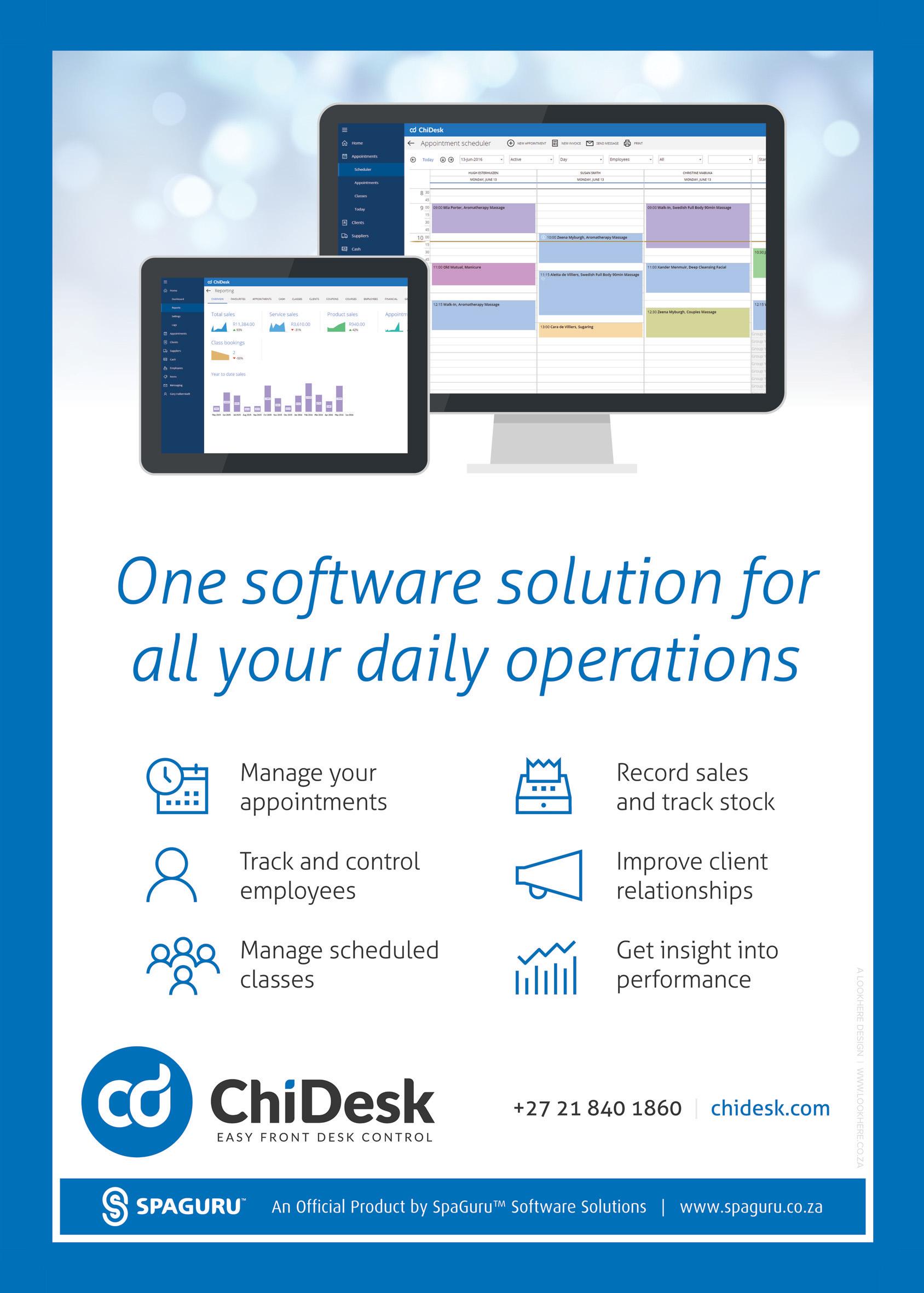
11 minute read
Power of Sleep in 2020 and Beyond
Power of Sleep in 2020 and Beyond By Shelly Ibach, President and CEO of Sleep Number; Sleep Editor-at-Large, Thrive Global

Advertisement
Now is the time to make quality sleep your priority. This exciting new decade we’ve entered is full of possibilities, and sleep is at the root of all of them; it’s the key to thriving and realizing our goals. Science has shown unequivocally that it’s vital to our wellbeing. Getting the right kind of zzz’s can help prevent illness, ease pain, increase productivity, and make us kinder — and happier. In short, quality sleep is life changing. Now, with astounding breakthroughs in technology, everyone can achieve it. At Sleep Number, we hold ourselves accountable for delivering meaningful benefits to consumers that move society forward. We are forging the future of sleep by utilizing data to inform innovation, research, and the science of sleep. We are dedicated to our mission of improving lives by individualizing sleep experiences. We are making quality sleep effortless and achievable to improve everyone’s health and wellness. Digital health must be simple, meaningful, and accurate. Innovators like us need to do our part in defining the future and taking on big health challenges like sleep deprivation.
According to the C.D.C. (Centers for Disease Control and Prevention), one in three adults don’t get adequate sleep. And the problem goes deeper. Sleep disorders are so pervasive in the United States that they constitute a public health epidemic. A study conducted by the Perelman School of Medicine at the University of Pennsylvania found that one in four Americans develop insomnia each year. In particular, people say that they aren’t comfortable at night, so their shut-eye is disrupted. And many people still don’t understand that quality sleep involves much more than the number of hours spent in bed. It’s important to get not only the right amount, but the right quality of sleep.
The good news: Sleep is finally at the forefront of the well-being conversation. Now more than ever, people want to understand how they can achieve higher quality sleep, and they value the important role sleep plays in their health and productivity. Technology is giving people access to digital tools that provide valuable information about their wellbeing. In fact, new CES research shows that 59% of millennials are interested in sleep technology.
While it is great to see this adoption of technology, all the data can be overwhelming and confusing, especially if it isn’t accurate. There’s no shortage of data available related to wellness, however, often much of it doesn’t result in meaningful improvements. In other words, data for the sake of data doesn’t do anything to improve health: It isn’t always productive.
So, what is the solution? One crucial and formerly overlooked key to quality sleep is simple, yet far from simplistic. It’s your bed. What you sleep on matters. At Sleep Number, we have been pioneers in sleep monitoring sensor technology and on the cutting edge of the digital health era. The revolutionary 360 smart bed effortlessly adjusts throughout the night; it senses each sleepers movement and automatically adjusts to keep both sleepers comfortable for the highest quality of sleep. Additionally, SleepIQ technology, the operating system of the 360 smart bed, provides personalized insights to improve sleep over time, as well as a nightly measure of quality sleep — your SleepIQ score as well as your average heart and breathing rates. There is nothing for the sleeper to wear or do — you simply go to bed.
It all started back in 2012 when we met the founders of a Silicon Valley startup, the world leaders in sleep monitoring and biometric hands-free technology that was being used in neonatal units. We recognized the potential of connected technology and how this technology would work with the adjustable firmness of our beds. My instincts told me that investing in this proprietary technology would add tremendous value to people’s well-being — it would be the smart bed. We acquired the start-up, transformed our company, and today, we are a purpose-driven company with 360 smart beds that deliver lifechanging sleep.
Recent research we conducted has shown that people who routinely use the features of their 360 smart beds, including foot-warming and their SleepIQ insights, improve their quality sleep by nearly 100 more hours each year. Studies have shown that an additional 15 minutes of quality sleep makes a considerable difference to your overall he)lth. We also announced a groundbreaking collaboration with Mayo Clinic to advance sleep science. Sleep deprivation has been linked to many diseases and health conditions including heart disease, obesity, Type 2 diabetes, and depression. We will be combining Mayo Clinic’s clinical expertise and research with our own extensive consumer sleep knowledge and technology. As a crusader for sleep, I believe this is crucial because we need evidencebased solutions to advance the science and the clinical practice of sleep medicine. We’re establishing The Sleep Number Research Fund in Sleep Science with an emph)sis on Cardiovascular Medicine, and the Sleep Number Research & Development Fund to Further Sleep Science. Our goal is that the collaboration will amplify our ability to impact society’s overall sleep and wellness. These are indeed exciting times. I’ve been thinking about how, five years ago, my friend Arianna Huffington — the founder and CEO of Thrive and, of course, a pioneer in so many ways — issued a wakeup call with her seminal book, The Sleep Revolution. It helped set in motion a sea change, making sleep a key element of the global conversation about wellbeing. Now the Digital Sleep Revolution is upon us, and in the future we expect SleepIQ technology to play a significant, preventative role by detecting potential health conditions, like breathing difficulties, sleep apnea, and restless leg syndrome. I foresee a future where your bed will become your health hub. It starts with great sleep, which leads to a he)lthy mind, body, and soul. I am counting on you all to make sleep a top priority. Whatever you sleep on and whatever your own bedtime routine is, it should be individualized for you — on your own terms. Sleep will support you in every way, and as a firm believer of quality sleep, I want to help you achieve it — so you can lead a healthier, happier life. Sleep well, dream big!

IV Nutrient Therapy –Drip with Caution

The AAMSSA Report: By Rochelle Friedman
Hooking up to an intravenous nutrient drip for various health and wellness treatments has become a huge trending procedure in the anti-ageing industry. Yet is must be noted that while there is scientific literature to support the benefits of these treatments, it does come with its own set of risks, contraindications and interactions.
Dr Cobus van Niekerk, Past President of AAMSSA (Aesthetic and Anti-aging Medicine Society of South Africa) advises on how to administer IV nutrient therapy responsibly and safely.
While intravenous nutrient therapy is by no means a new anti-ageing treatment, its popularity shows no signs of abating. Quite the opposite actually: over the years, IV drips has become a firm favourite amongst a variety of health conscious individuals – such as those who are looking to treat anything from certain cancers, ischaemic heart disease and high cholesterol –to boosting their energy levels or improving their appearance. In a nutshell, IV therapy offers a range of treatment solutions in the health, aesthetics and anti-ageing market. The question is though: do they work? IV Therapy – Worth the hype? Or is it all in ‘vein?’
The fact is, those who are undergoing IV ther/apy – or considering getting such a treatment/s, should not be discouraged to do so as there is scientific literature to support these treatments.
That said however, it’s imperative that IV treatments are done in a responsible way by well-trained practitioners. Risky Business
It is worrying that people trust non-medically trained IV Bars (business entities), where the patient chooses the latest trend on a menu, with no doctor supervision, no examination and no preliminary blood tests to asses a patient’s general health before undergoing a treatment like this. This is despite the procedure carrying several contraindications, interactions and consequences. In fact, there have been at least two cases of documented deaths related to IV treatments in South Africa. It is therefore so important to do your own research, research the doctor or clinic where you will receive the treatment, and use this article for things to watch out for before embarking on this journey.
Ethically and Safely
Every IV should be done ethically correct, by a medical doctor trained in IV therapies with a full history, examination (including observations) and documentation of any allergies. The doctor should sign off special investigations (pretesting), and informed consent needs be obtained from patients. Moreover, any complications, side effects and contra-indications should be discussed and considered with patients. A follow up must then be scheduled.
On the day of the IV treament, all patients are required to have their observations checked, / urine test performed, and patients asked to document their last meals.
In addition, all IV treatment patients must be monitored at all times for symptoms like dizziness, nausea, confusion, cramps, pain at the drips site, sweating etc. If there is no doctor on site to deal with emergencies, don’t have the treatment done. In fact, not only should / doctor be present, but / resuscitation trolley should be available in the treatment room.
Medical practitioners and nurses must ideally have a Basic Life Support Certification, with at least one practitioner being Advanced Life support Certified.
Notably, certain treatments should be administered over at least three hours, as doing it faster may cause severe side-effects, and even lead to the death. The potential use of IV therapies includes, but is not limited, to:
Malabsorption syndromes Chemotherapy/cancer therapies Chronic fatigue syndrome Detoxification
Gastric bypas patients Peri-operatively Macular degeneration Chelation therapies Anti-ageing PMS relief Hair treatments
IV Nutrients consists of:
Vitamins Anti-oxidants Minerals Anti-microbials Membrane stabilisers Chelating agents Trace minerals Phosphatidylcholine Specialised anti-cancer treatments
The most common vitamins include vitamin A, B-Complex, folic acid, vitamin C and vitamin E. Antioxidants for IV use include alph/ lipoic acid, glutathione, superoxide dismutae etc.
When it comes to IV chelating agents, these should only be used by trained doctors with experience. Trending Treatments: Be Informed
The most popular treatments listed below only scratches the surface with regards to IV nutrient therapies, and it’s purely listed here so that patients nd potential patients may be informed about what they may receive in their treatment.
The B-Complex Vitamins • In combination it helps to provide optimal health. • Are important in glucose metabolism and stabilization of brain chemistry • Relieves leg cramps, is important for thyroid function, treating insomnia and improves irritability • Vitamin B supplementation should be used in patients with hormone replacement therapy and hormonal contraceptives as it may deplete Vitamin B
Vitamin C • Vitamin C is an anti-oxidant and benefits the immune system (increases white blood cells and interferon) • It decreases the rate of certain cancers, improves gum disease • It reduces bruising, helps regenerate vitamin E, glutathione and uric acid, and is involved in serotonin production (treatment of depression and anxiety) • Vitamin C increases HDL (good cholesterol), lowers triglycerides and prevents free radical damage of LDL (bad cholesterol) • Vitamin C prevents the incidence of lung disease, increases fertility, lowers the incidence of cataracts and aids in wound healing • The above is the reason that ‘high dose vitamin C’ is such a buzz-word in integrative and functional medicine
Glutathione • Please note that glutathione, though improving complexion, may lead to other complications like a higher incidence of skin c/ancer – and is not in itself promoted as a skin lightening treatment • It does, however, have an important role in immune metabolism and transport of amino acids across cell membranes, improves macrophage function and is important in red blood cell integrity • It is also a powerful intracellular antioxidant and is useful in neurological diseases, radiation exposure, overdoses, brain injuries, arsenic poisoning, parkinson’s disease, chronic kidney failure and emotional disorders
Meyer’s Cocktail • Developed by Dr John Myers, MD, this cocktail has been used by thousands of physicians • Slow IV push made up of vitamin B-complex, B5, B6, B12, vitamin C, magnesium and calcium (contra-indicated in patients on digoxin) • This is an all-round good IV drip • Increased energy levels an adrenal gland support. • Stress reliever (magnesium, B-vitamins and vitamin C) • Low magnesium may cause dysrhythmias, palpitations, tremors, asthma, hypertension, IBS or psychological symptoms of anxiety and insomnia. Contra-indications to IV Therapy.
Absolute:Dialysis
Relative: Chronic renal failure, Congestive heart failure, Allergies / sensitivities to ingredients, G6PD deficiency – Absolute contra-indication for vitamin C deficiency, Poorly controlled hypertension, Seizure disorders (epilepsy) Cardiac arrhythmia (abnormal heart rhythms), Nephrolithiasis (kidney stones)
Incompatibilities: Folate + other vitamins, minerals may cause precipitation, Alpha lipoic and phosphatidylcholine should be given alone Do not push thiamine rapidly as it may cause an aphylaxis, EDTA should only be given with Ca and Mg, (No other minerals), Vitamin C and B12 may cause oxalate kidney stones. Fat soluble vitamins and nutrients should be given through central IV lines or PIC lines only. Glutathione may cause allergic reactions and should be started at half doses. New IV bags by Baxter are free of xenoestrogens Take Home Message
Please be cognisant that IV treatments are not as clear-cut and simple as some IV Bars and other professionals may make it out to be. Be careful of who you trust and do your research on the treatments, as well as the treating medical physician who will be administering your IV. It is, after all, your body, and someone with enough knowledge may just be empowered enough to make the right decision for themselves at the right time…











